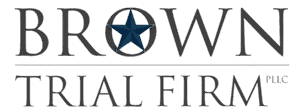A helpful guide for Texas residents regarding motorcycle laws in Waco
In 2018, there were approximately 420,000 motorcycles registered in the state of Texas. The warm seasonal climate makes the hobby of riding appealing for many. However, riders must be aware of Texas’ motorcycle laws, which are designed to keep riders and other vehicle operators safe.
If you’re involved in a motorcycle accident in Texas, it’s also important to understand how these laws and others might impact your compensation claim. Our Texas motorcycle attorneys can help in that regard, so reach out to us if you have any questions.
Required motorcycle features
As with traditional vehicles, bikes must have basic functional mechanical parts and safety features. In order to legally operate a motorcycle on the streets of Waco, your motorcycle must adhere to these street legal requirements.
According to Texas law, motorcycles must have basic equipment for the purpose of safety and identification. These features include:
- Vehicle identification number (VIN)
- Exhaust system
- Horn
- Side mirrors
- License plate and lamp
- Braking system
- Taillight
- Brake light
- Rear reflector
Motorcycle licensing requirements
All motorcyclists in Texas must take a Department of Public Safety driving course. Motorcyclists must pass the required driving and written tests. Upon passing, cyclists receive a class M rating on their license, which covers mopeds and motorcycles.
Motorcycle registration
In order to legally drive a moped or motorcycle on Texas roadways, operators must register their vehicle with the County Tax-Assessor office in their county.
In Waco, that refers to McLennan County. The office address is 215 N. 5th Street, Suite #118. To schedule an appointment, call 254-757-5130.
Upon registration, owners receive a valid license plate along with a registration sticker, which must be attached to the plate. Registration occurs annually.
Motorcycle inspection
As with other vehicle types, motorcycles must undergo annual inspections at the appropriate motor vehicle inspection station. Visit the Texas Department of Public Safety website for a complete listing of all the vehicle inspection areas near you. Motorcycles that pass the inspection are given a certificate that must be displayed within proximity of the license plate.
Motorcycle insurance requirements
Motorcycle owners and operators must insure their vehicle, just like drivers of 4-wheel vehicles.. Proof of insurance must be provided when registering the bike, during an inspection and when getting a Texas driver’s license.
Drivers must carry proof of insurance while operating a motorcycle. However, law enforcement officers can’t legally detain or stop a biker for the sole purpose of determining if they completed the course or have proof of insurance.
Texas motorcycle helmet laws
Motorcycle operators or passengers who are under the age of 21 are required by law to wear a helmet in the state of Texas. Owners aged 21 or older are not required to wear helmets if they attend and complete an operating training course approved by the Department of Motor Vehicles. However, alternatively, they must have a minimum of $10,000 of medical insurance coverage.
Motorcycle passenger restrictions
Riders under the age of 5 are prohibited from riding on motorcycles. Passengers between the ages of 5 and 21 are required by law to wear a protective helmet while riding. In order to carry passengers, the motorcycle must also have permanent and sufficient seating for 2 people.
Motorcycle parking laws
As with any other type of motor vehicle, motorcyclists are only permitted to use disabled parking spaces if they are disabled and display proof of authorization on the windshield or license plate. Motorcycles cannot park in areas not designated as parking spaces. Operators also can’t park their bikes on pedestrian walkways.
Texas lane-splitting laws
Lane-splitting refers to the action of a motorcyclist traveling between lanes of traffic in order to pass other vehicles or through traffic. Although the act is not explicitly against the law in Texas, the technique is considered dangerous and should be avoided.
If you do lane split, motorcyclists are advised to do this at safe, slow speeds. You should also avoid lane-splitting near large vehicles, as there is a chance the driver may not see a motorcyclist in their blind spot.
Recommended motorcycle safety gear
There are no laws pertaining to what a motorcyclist must wear when operating a bike. However, as the motorcycle provides little protection while driving or during a collision, bikers should invest in gear to protect them from potentially serious or fatal injuries.
Motorcycles with or without windshields offer little protection from insects or other flying debris. As such, motorcyclists are advised to wear helmets equipped with shatterproof face shields to protect their eyes. Some might prefer shatterproof sunglasses. However, a biker’s eyes may water, which impedes vision and could lead to disaster.
Various types of protective clothing can protect the motorcycle operator from sun or windburn and exposure to the elements. They also help minimize injury should the biker fall and contact rough roadways. Recommended clothing includes:
- Sturdy footwear that covers the ankle and has no loose or dangling features
- Gloves that protect the hands from the elements or road rash
- Brightly colored garments that protect against abrasions while increasing visibility
- Rain gear during seasonal storms
Injured in a wreck? Consult with a motorcycle accident attorney
According to the National Highway Traffic Safety Administration (NHTSA), Texas ranks 2nd of all states when it comes to motorcycle accidents. Statistics indicate that more than 95 percent of collisions involving motorcycles result in driver injury. Approximately 45 percent of the injuries are considered serious or life-threatening.
Anyone involved in a motorcycle accident, or who has a loved one who suffered a collision while riding a motorcycle, should consult with an experienced Waco motorcycle accident attorney.
At Brown Trial Firm, we have the knowledge and experience needed to guide injured motorcyclists and their family members through the process of obtaining compensation for medical expenses, property damage, pain and suffering as a result of a motorcycle accident.
